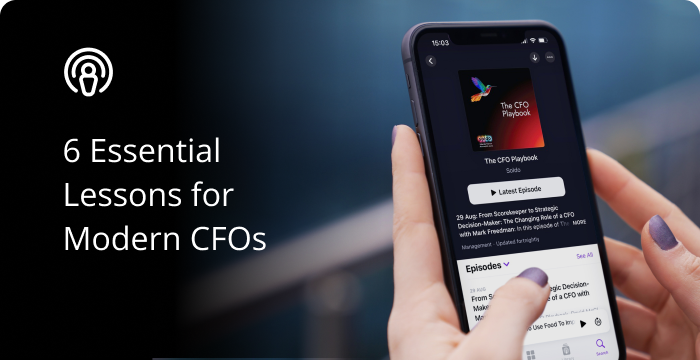Reducing manual work is the biggest challenge for finance leaders today
Most managers are desperately trying to recruit and retain great talent to fuel growth (rather than trying to find ways to “reduce costs”). They can do this by automating spend processes, removing needless manual work. The benefit of doing this isn’t in reducing costs – it comes from freeing finance teams up to do valuable work, work they actually want to do.
“Saving costs” seems like an obvious thing anyone would want to do. Particularly in a finance department – surely the MO of most finance leaders is to try and cut costs and reduce unnecessary waste? It’s a stereotype and therefore unfair, but – it would seem unusual to meet a finance leader who is comfortable with excessive or seemingly unnecessary spend, whether on marketing campaigns, new shiny tech, or work social events.
But I do think this characterisation of finance leaders is unfair. A Gartner report from last year suggested that it was the need to support the growth of the business, rather than “Cut costs” that was a top priority for CFOs, controllers and FP&A teams. Of course these things aren’t mutually exclusive – funding growth in an efficient manner, not wasting budget on ideas that have been poorly thought through – all still necessary as part of the role. But saving costs just isn’t enough.
But what’s underlying this driver? And why is this so difficult – what are the real, on-the-ground challenges for finance teams when it comes to supporting growth through digitisation? I think there are a series of related challenges that finance leaders face:
- It’s a very competitive job market right now. Whether you’re recruiting and trying to retain a finance team, devs, marketers, anyone, the “Great resignation” has made that an uphill struggle – people are being offered new roles left, right and centre.
- Many finance teams are held back by poor processes, manual work, copy-and-pasting of data between siloed systems, and other working practices which really should have been automated out years ago.
- This leads to many finance teams spending their time on dull, manual tasks rather than interesting, valuable work, where they can really thrive in their jobs.
- Go back to step 1 – retaining great people when they are faced with drudge work is tough at the best of times. Even worse in today’s climate.
At its core, I think the idea of finance teams having to prioritise cost reduction (across a whole business) is based on a misunderstanding of the real and most important “cost” for a business – its people.
To put it brutally, to make a saving with “people costs” the company would have to fire people. But, in today’s environment, hiring and retaining staff is a far bigger headache than saving costs from letting people go. The cost-saving calculation assumes an environment where the manager currently has too many people working for them, and is being asked to make savings. But this isn’t the reality for almost every manager I’ve spoken to in the last 10 years – the perennial problem managers have is growth and finding talent to fuel that growth. What they’re asking is “How do I find great people? I’m short-staffed, and just can’t hire the people I need. And when I do hire them, it’s such a hot job-market, I lose them unless I keep them happy!”.
The real pain that our clients have is hiring a great team, building and developing that team, then keeping them engaged. By building that great team, they not only get the obvious advantages and pride of running a great organisation, they also get multiple benefits from being able to provide much more value to the rest of the org. I.e. instead of my team being seen as a “Cost centre, to be reduced wherever possible”, it’s seen as “An incredibly value part of the company that’s helping us grow and be successful”. This “Soft ROI” is what senior finance leaders are really worried about. At Soldo we sell software to help automate spend and expense processes for finance teams – here’s how I’d describe the world of the average finance team, from talking to our customers:
- Finance teams are generally seen as a “necessary cost”. There is an unfair perception that they add little value.
- They spend enormous amounts of time on manual drudge work. I’ve seen this sort of activity called things like “Hamster work”, “Treacle” and similar terms, but the idea is the same – you have humans doing work that computers were designed to do.
- This is particularly bad in finance teams – practices that would be deemed unacceptable in a development or marketing department – are somehow okay in finance. I’ve seen teams working till midnight manually refreshing spreadsheets every 30 minutes, teams spending 1-2 weeks on month end (I mean, there are only 4 weeks in the actual month!). This sort of time-wasting has been reduced or removed entirely in most other parts of a high-functioning company.
- This drudge work leads to a very specific people problem – how do you keep your talented people motivated? There’s a chance that, when you hired them, you weren’t fully transparent with the manual work involved – now they’re here and they’ve had that rude awakening, they’re not happy about it, they’re getting de-motivated, and they’ll start to look for other opportunities.
- In parallel, your team isn’t doing any particularly interesting or value-add activity. This is problem both in reality and perception – that crucial project to work out the ROI on your vast marketing budget has been on hold for 9 months now, leading to significant waste. And your boss can only ask you so many times why it hasn’t happened yet?
- This all leads to employee churn, poor performance overall, and an endless cycle of hiring, and less-than-impactful work.
This is an example from the world of finance, but of course the same could be said for other teams – though I’d argue to different degrees. The sort of waste I’ve seen in finance teams was ironed out years ago in development, where you see people automatically running 512 cloud-based tests at the push of a (build) button without a manual step in sight – the sort of automation finance teams can only dream of.
As I say, Soldo helps automate away many of these manual tasks, particularly in spend and expense management. But I’d suggest it’s an even broader problem than that – across many tasks finance teams are struggling with antiquated ways of working. It’s a problem the whole of the Fintech community is trying to address. But right now, anything you can do to take away that manual drudge work – can only be good for you, and your employees.












